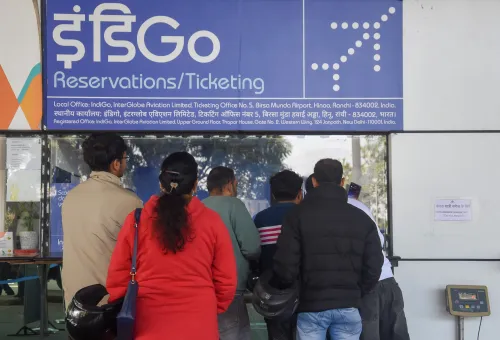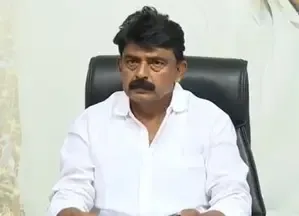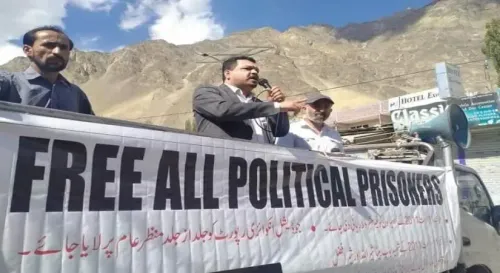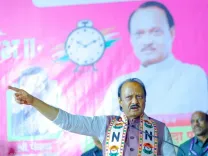Why Was Digvijaya Singh's Brother Expelled for Speaking the Truth?
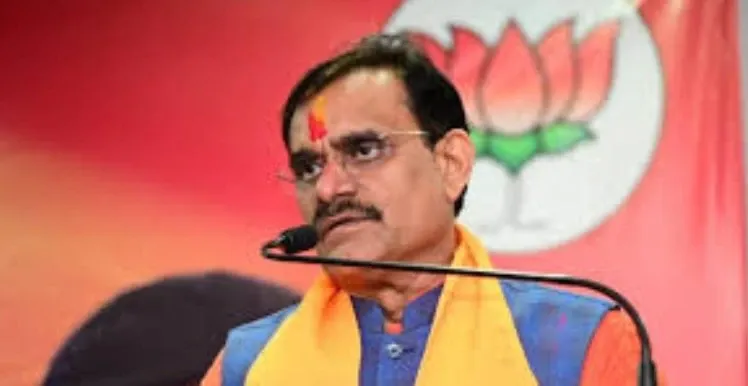
Synopsis
Key Takeaways
- Laxman Singh's expulsion illustrates internal strife within Congress.
- Freedom of speech in political parties is under scrutiny.
- Leadership dynamics can lead to significant conflicts.
- This incident may affect Congress's public image.
- Political dissent should be encouraged for healthy party dynamics.
Bhopal, June 12 (NationPress) The Madhya Pradesh Bharatiya Janata Party Chief V.D. Sharma remarked that the former Congress MLA Laxman Singh faced disciplinary action for having the audacity to "speak the truth", a move viewed unfavorably by the "sycophants" of the Lok Sabha's Leader of the Opposition, Rahul Gandhi.
He further noted that while the Congress party claims to encourage its workers to express their views freely, the reality starkly contrasts this narrative, as evidenced by the expulsion of Laxman Singh.
This statement was made in response to the Congress's decision to expel Laxman Singh, the younger brother of former Madhya Pradesh Chief Minister Digvijaya Singh, due to his ongoing anti-party conduct.
According to the BJP leader, the expulsion serves as a clear indication to Congress members that those who dare to "speak the truth" will be ousted. "Congress seeks followers, not leaders who are willing to speak up," he added.
The Congress Disciplinary Committee expelled Laxman Singh for a duration of six years, citing multiple instances of anti-party activities.
This decision followed closely after Rahul Gandhi's visit to Bhopal on June 3, where he stated that anyone creating obstacles should either resign voluntarily or face expulsion.
On April 25, Laxman Singh publicly criticized the party leadership in the wake of the Pahalgam terror attack.
He remarked, "Rahul Gandhi and Robert Vadra are naive. The country is suffering because of their immaturity," during a tribute meeting for the victims of the terror incident.
In another bold claim that same day, Laxman Singh accused Jammu and Kashmir Chief Minister Omar Abdullah of collaborating with terrorists.
Following these remarks, the Congress Disciplinary Action Committee issued a show cause notice on May 9, requiring an explanation within ten days.
The notice, from member secretary Tariq Anwar, highlighted a complaint from Madhya Pradesh Congress Chief Jitu Patwari and AICC General Secretary in charge of Madhya Pradesh, Harish Chaudhary, regarding Laxman Singh's repeated public statements that have harmed the party's image and dignity.
It was also noted that his recent comments crossed all acceptable limits, particularly regarding derogatory remarks aimed at senior party leaders, including Rahul Gandhi.
Defiantly, Laxman Singh challenged Congress to expel him immediately if they found his remarks unacceptable.
However, his response was deemed unsatisfactory, leading the party's disciplinary committee to recommend his removal.
With approval from the Congress high command, Tariq Anwar officially announced Laxman Singh's expulsion on Tuesday.
The princely region of Raghogarh has historically played a significant role in Madhya Pradesh politics, with Digvijaya Singh having served as Chief Minister before advancing to the Rajya Sabha.
His son, Jaivardhan Singh, currently holds a position in the State Assembly representing Raghogarh, while Laxman Singh has previously served as both a Member of Parliament and a legislator from Chachauda.
Despite his political journey, he has often been viewed as overshadowed by the immediate family of Digvijaya Singh.
He also briefly aligned with the BJP.
Strains emerged in 2018 when Congress reclaimed power in Madhya Pradesh after a 15-year hiatus.
Laxman Singh, anticipating a Ministerial role due to his seniority, was overlooked in favor of Jaivardhan Singh.
While he initially refrained from public dissent regarding this decision, he continued to voice his grievances sporadically.



